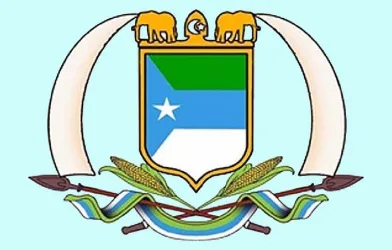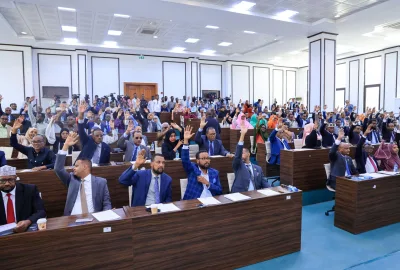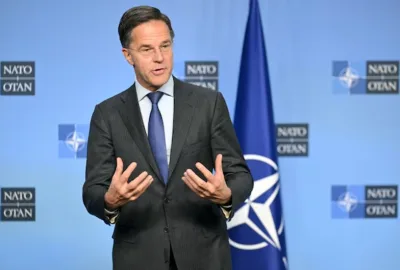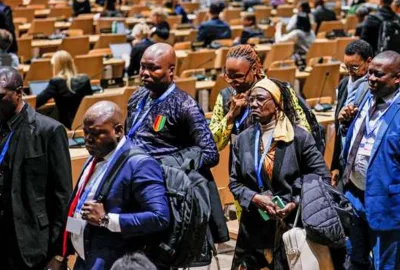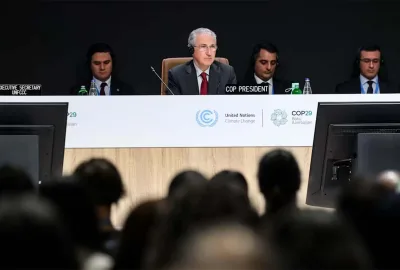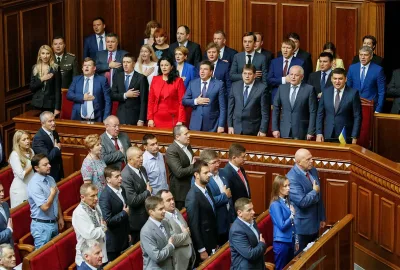Introduction Democracy, rule of law, bureaucratic efficiency and visionary leadership are the hallmarks of good governance.…
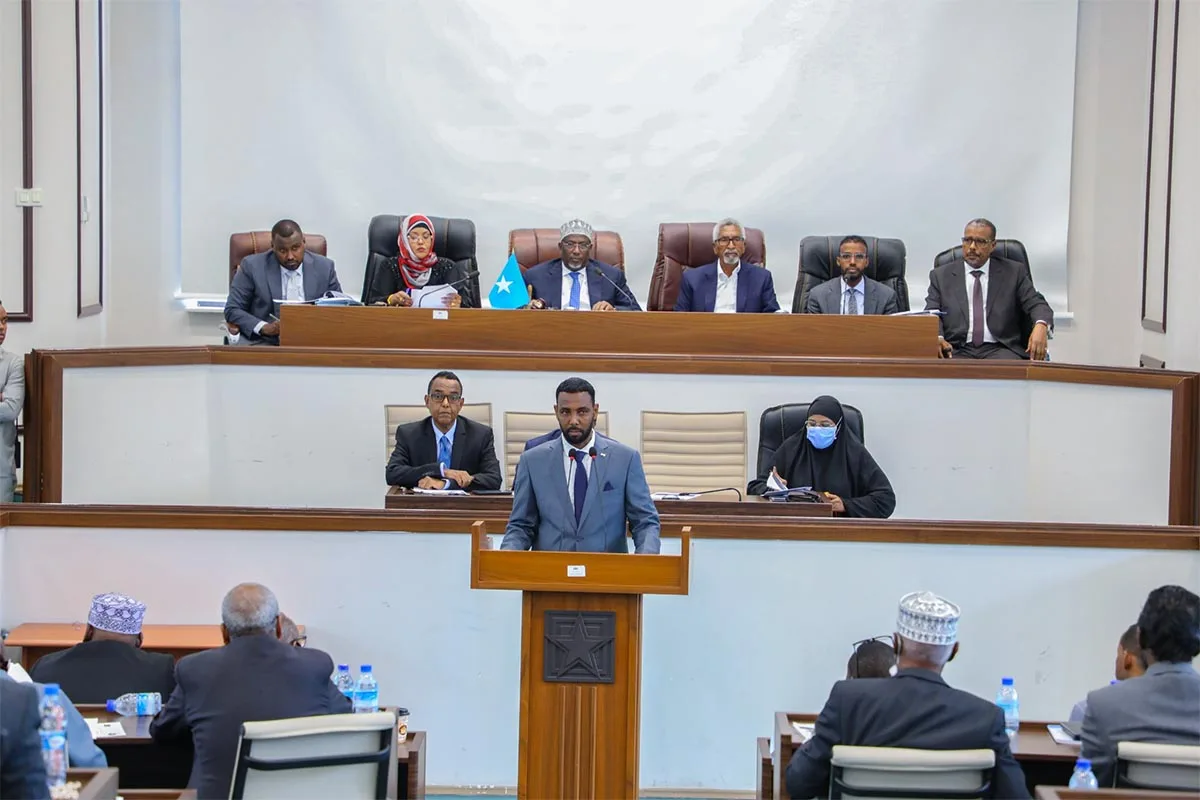
Introduction
Democracy, rule of law, bureaucratic efficiency and visionary leadership are the hallmarks of good governance. The concept of governance can be traced to ancient Greek etymological thought, where the term was derived from the Latin verb “to steer.” At the same time, in the 12th century, the English adopted it from the French term “gouvernance.” John Locke’s 17th-century theory of limited government laid the foundations for democratic principles that are still influential today. He proposed that a legitimate government must “operate within the confines of a social contract, where the consent of the governed binds the rulers and are accountable for upholding the rights of the people. By limiting the government’s authority and establishing a system of checks and balances, Locke believed that individual freedoms could be preserved and tyranny prevented.”
In his treatise, The Spirit of Law, Montesquieu, the 18th-century French Enlightenment political philosopher, advanced the doctrine of separation of powers, arguing that state power should be split between the executive, legislature and judiciary, further postulating that if these powers are unified, it will create despotism.While good governance is essential for development, modern-day governance scholars have shed light on bad governance. In his book “When States Fail” governance scholar Zaltman describes the absence of effective governance “as the disintegration of state structures, authority, legitimate power, law, and political order,” while Leibach I. identified four characteristics of a dysfunctional system that include a disorganized state, violent conflicts, violations of human rights and social fragmentation.
Governance Indicators
Political analysts and pundits agree that good governance helps countries improve economic growth, build human capital, and strengthen social cohesion. The World Bank’s Worldwide Governance Indicators (WGI) are designed to help researchers and analysts assess broad patterns in perceptions of governance across countries and over time.
The Bank has identified six indicators that can be used to measure and predict a country’s effectiveness in good governance. These include “voice and accountability, government effectiveness, rule of law, political stability and absence of violence /terrorism, regulatory quality and control of corruption..” As noted by a governance working group, the term refers to the proper functioning of institutions and their acceptance by the public (legitimacy).
Definitions
While there is no universal consensus on what constitutes the definition of governance, the definition proposed by the World Bank is the most widely used as it has ignited the debate on modern-day discourse. According to the Bretton Woods institution, governance can be defined as “the manner in which power is exercised in the management of a country’s economic and social resources for development.” In a 2010 World Bank commissioned report, Kaufman et al. stated that good governance is the process by which (1) governments are selected, monitored and replaced, (2) the capacity of the government to effectively formulate and implement sound policies and (3) the respect of citizens and the state for the institutions that govern economic and social interactions among them.”
From a political perspective, governance is seen in the realm of steering, in which the state executes legitimate authority over society. However, UNDP takes a more holistic approach that incorporates other actors by defining governance as “the system of values, policies and institutions by which a society manages its economic, political and social affairs through interactions within, and among the state, civil society and private sectors.”
Political scientists emphasize the need to differentiate between the state-centred approach and the society-centred model of governance. The state-centred definition narrows the field of interest only to the state domain, including its command and control functions over its administration in issues of inner management and inner decision-making.
The society-centred approach highlights the fact that government bodies are not operating in a vacuum and that many other actors may align with or augment the government’s vision and could be potentially part of the decision-making process. Technically speaking, the actions and role of political leadership and bureaucratic elites are fundamental to shaping the governance of any given country.
Principles of Good Governance
Good governance is underpinned by five core principles. A governing entity known for good governance practices is one that is in action and spirit and demonstrates accountability, leadership, integrity, stewardship, and transparency (A.L.I.S.T.). As noted by a 2019 World Bank document, “Effective governance is underscored by five aspects: the quality of public services, the quality of the civil service, the degree of the government’s independence from political pressures, the quality of policy formulation and implementation, and the credibility of the government’s commitment to such policies.”
In addressing the lack of development and the crisis of governance in Africa, scholars identified key elements of good governance that can help African countries overcome development and security challenges. These include “an efficient public service; an independent judicial system and legal framework to enforce contracts; the accountable administration of public funds; an independent public auditor, responsible to a representative legislature; respect for the law and human rights at all levels of government; a pluralistic institutional structure, and a free press.”
Technocratic View
Given my long tenure as a technocratic senior public servant both at the regional state and federal levels, I have witnessed firsthand the challenges of governance in a fragile and conflict-ridden country like Somalia. I draw my experience from my time as the former Director General of the of the Federal Ministry of Women and Human Rights Development and the Ministry of Youth and Sports, respectively, and during my stint as former Chief of Staff (Director General) of the Puntland President and as well as my role as senior advisor to Prime Minister, Professor Abdiweli Mohamed Ali, of the Transitional Federal Government of Somalia.
Key to governance success is the stewardship of effective government coordination across all ministries. From my observations, the apex of government operations and coordination at the Federal level is at the Director General (DG) docket. This is because DG’s are tasked with the lion’s share of government functions, including general management responsibilities, business planning and expenditure management, as well as performance measurement/evaluation and reporting to the cabinet, parliament and other stakeholders.
Technocratic DGs ensure that the descending line of civil servants provides efficient government services to the public. They are responsible for ensuring that government policies are implemented correctly and that services are delivered effectively. They also play an essential role in advising and supporting ministers and other government officials. More importantly, they help develop annual work plans and contribute to the policies and procedures of each department of the ministry.
In any given jurisdiction, Somalia included, the DG’s are the movers and shakers of public administration. If they excel in their duties, the nation prospers; institutional decay sets in if they falter.
Responsible for developing legal frameworks, policies, and strategies in their respective ministries, fulfilling and overseeing the implementation of set mandates, and ensuring all programs and projects are implemented in performance with the service agreements with different partners, Somalia’s DG’s are undisputedly the drivers of government operations.
Unfortunately, nepotistic Somali administrations continue to undercut the role of highly skilled technocratic DGs. This is because they are unceremoniously shown the door and replaced with hand-picked cronies unfit for public service.
Competent DGs possess the demonstrated ability to maintain robust public sector management while ensuring extensive engagement with Somali Federal and State entities, members of civil society and development partners. The appointment of a highly qualified cadre of civil servants to operate key bureaucratic institutions of the state will serve as building blocks for fostering good governance in Somalia.
Despite state fragility, a country’s leadership can embark on an ambitious plan to improve governance if the tenacity to perform permeates the mindset of the rulers. This requires political will and visionary leadership within the ruling circles. The executive cannot steer a nation in the right direction without the support and backing of a technocratic-inclined government bureaucracy.
The Importance of Good Governance
In recent decades, the debate on what constitutes good governance has taken centre stage in academic and political circles. According to political scientists, the eight pillars of good governance include accountability, transparency, rule of law, public participation, responsiveness, consensus-building, equity and inclusiveness, effectiveness and efficiency.
Good governance spurs economic prosperity, enhancing all spheres of development, such as production, job creation, distribution, investment, consumption and fiscal prudence.
Further, good governance is the driver of social development. It ensures the fair distribution of wealth and resources, access to quality and affordable healthcare, education and housing, improvement in living and quality of life, and the bridging of gender and social disparities across the social classes.
More importantly, good governance lays the foundation for political development, including democratization and constructive cooperation between political institutions and political parties. It enhances multi-party democracy, the rule of law, constitutionalism, and human rights, as well as guarantees civil and political liberties, freedom of expression and association and the right to political dissent.
On security, good governance fosters peace, stability and the maintenance of domestic order. It solidifies conflict-prevention mechanisms, creating conditions that allow peace to flourish.
In the justice arena, good governance builds a just society where everyone is treated equally in front of the law and the rights of minorities and the oppressed are protected.
Recommendations
The lack of responsive political leadership and properly functioning government bureaucracy remains one of the stumbling blocks to good governance and development in Somalia.
The following recommendations, principles and practices offer a detailed A.L.I.S.T. that can help steer Somalia in the right direction.
Accountability: Leaders and all public sector employees should take responsibility for their decisions and actions and be willing to be held accountable to the public.
Leadership: The rulers at the nation’s helm should set the tone at the top by embracing and demonstrating good leadership. Their good leadership style should be emulated by all political leaders, public servants and members of civil society.
Integrity: The country’s leadership and public servants should act ethically and impartially in the fulfilment of their duties. They should respect the laws of the land, comply with the constitution, legislation, regulations and policies, and instill a high level of morality and professionalism at all levels of government and society.
Stewardship: The country’s rulers must act as the guardians of public resources while maintaining and improving the capacity to serve the public interest over time. Somalia can borrow a leaf from Burkina Faso’s Ibrahim Traore, who has acted diligently to end the wanton looting of public coffers, ensuring the country’s natural resources and wealth are used for the betterment and welfare of the ordinary citizens while cutting waste in government and redirecting resources to where they are needed the most.
Transparency: The actions and decisions of state officials should be open to public scrutiny. Stakeholders and members of the public should periodically have access to complete, accurate and clear information on all matters of importance to the citizenry.
In turning the above principles into practice, the Somali government should proceed with the following:
Meritocracy: As I have discussed in previous articles, Somalia should emulate Singapore’s MPH formula, which stands for meritocracy, pragmatism and honesty. This formula helped the previously third-world country mired in cycles of poverty to transition from chronic underdevelopment to a newly industrialized nation. The first element of the MPH formula is meritocracy. This means that individuals are promoted based on their abilities and achievements rather than their social background or connections. The second element of the MPH formula is pragmatism. This means that policies and decisions are based on practical considerations rather than ideology, political or sectarian beliefs. The third element of the MPH formula is honesty, which means zero tolerance for corruption and malpractices.
Capacity-Building: According to the World Bank, United Nations and European Commission, capacity-building consists of five areas: a clear policy framework, institutional development and legal framework, citizen participation and oversight, human resources improvements including education and training, and sustainability. Capacity-building should be a national priority for Somalia.
Anti-Corruption: Somalia persistently ranks at the bottom of the world in the annual Transparency International Perceptions on Corruption Index. To slay the dragon of corruption, Somalia must set up an Anti-Corruption Commission that should lead the fight against graft.
Art of Leadership: The government should introduce a mandatory leadership program geared toward training political leaders so that they can learn the art of governing, develop sound leadership qualities and styles, refine their critical thinking and negotiation skills, develop strategic skills and improve their ability to lead and execute government policies and strategic plans.
Conclusion
The realization of good governance requires political will on the part of the ruling elite. According to David Roberts, political will exists when a sufficient set of decision-makers with a shared understanding of the national agenda are committed to working in the public interest by advancing commonly perceived, potentially effective policy solutions.
Good governance can only be achieved in a free and democratic political system, as it cannot emerge from a despotic, totalitarian system. A well-trained, fully functioning, independent government bureaucracy is key to unlocking good governance drivers.
Overall, good governance at all levels of government is fundamental to democracy, economic growth, political stability and security, social prosperity efficiency, smooth operations of government services, accountability and transparency while enhancing a country’s reputation and image on the world stage.
(Deeq Yusuf is the former DG of the Ministry of Youth and Sports and the Ministry of Women and Human Rights Development, Federal Government of Somalia. Previously, he was the Chief of Staff of Puntland State Government of Somalia and a Senior Advisor to the Prime Minister. He can be reached via Deeqyusuf03@gmail.com)


